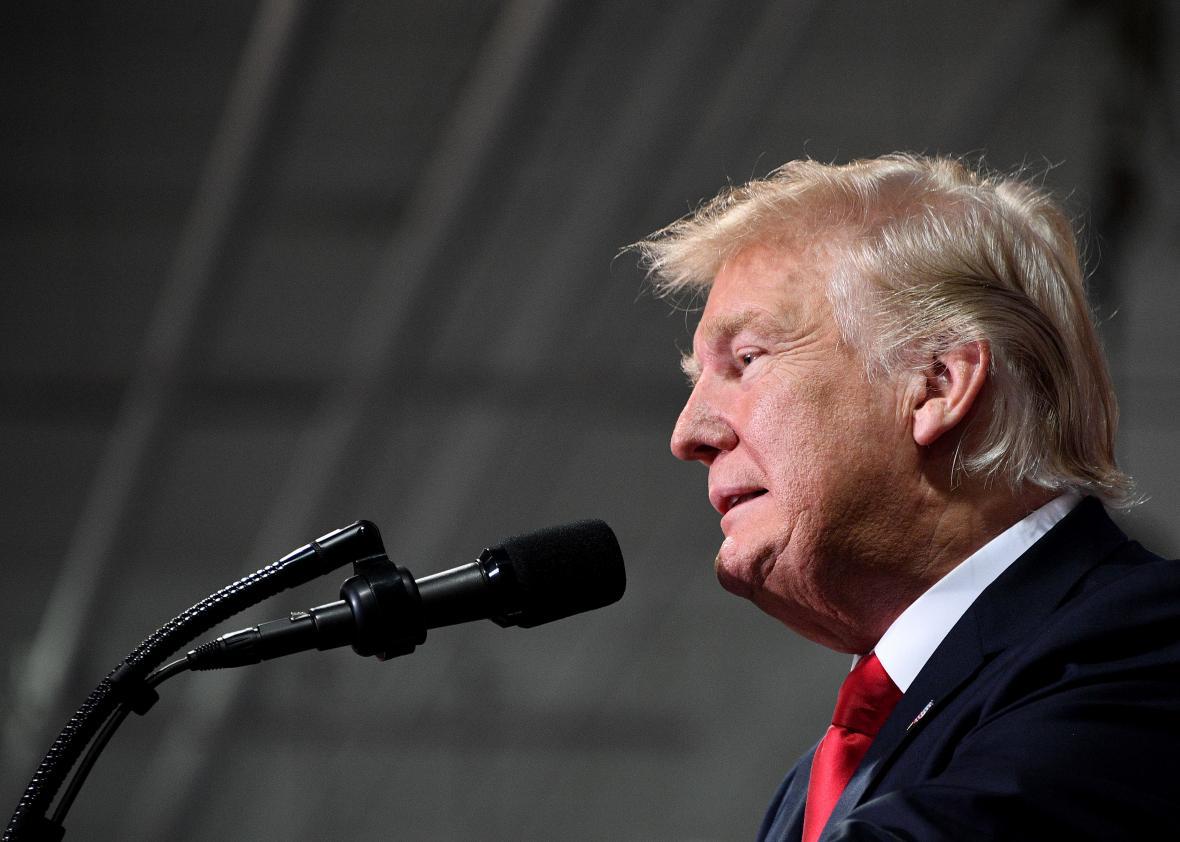Donald Trump gave a speech on taxes today. Delivered to a modest crowd in Missouri, it was the best example yet of his commitment to infusing populist rhetoric into his plutocratic governing. A president who loves to speak of the forgotten (white) man is intent on pushing a tax cut that will almost surely explode the deficit, all in the service of enriching people even more wealthy than himself. The speech was just another reminder of how little Trump cares about actual policy, and how the things he says out loud have little connection to governing realities.
Remember health care? Trump clearly had no interest in the details or specifics of repealing Obamacare, and displayed an unwillingness or inability to utter more than brief bromides on the issue. He talked about giving health care to everyone and making it more affordable than ever, and then told Congress, in vaguely menacing tones, that if the House and Senate didn’t pass a bill that would do the opposite he’d be really angry.
Trump seems to know more about taxes than he does healthcare. (We call this grading on a curve.) In his speech, he approvingly mentioned the tax reform bill of 1986—something he was opposed to at the time, and for many years after—and spoke at some length about companies moving jobs and money overseas. Trump talked of corporate taxes as the scourge of working Americans (but didn’t mention how far the corporate rate would fall, or what effect it would have). He went into some detail on giving a holiday to companies who have money parked abroad, which can politely be called a giveaway, regardless of the language it is sold in. But this speech was still mostly bereft of specifics. Executive branch officials like Gary Cohn and Steve Mnuchin have been weighing in with “principles,” but once again the White House is leaving the details of an issue to Congress.
And once again we have a pretty clear sense of what Paul Ryan and his aficionados in the House want to do. Trump may have spoken of his policies being “pro-worker,” and briefly laid into tax breaks that “primarily benefit the wealthy” and “special interests.” But we all know what’s coming from Congress, and it’s not populism. Ryan and McConnell care as much about the tax burden on non-rich Americans as Trump does the future of Medicaid. Their interest lies not only in lowering corporate rates, but also in cutting taxes on high-earners. They gaze out upon the vast beauty of America, and mourn that this egalitarian Eden does not give enough aid and comfort to the forgotten millionaire.
If you therefore want to understand the debate over taxes, you will have to turn your attention to Capitol Hill. Indeed, the stupid debate over whether Trump should be taken “seriously” or “literally” is in this case moot: he shouldn’t really be listened to at all. It’s quite an adjustment to have to make because we are used to presidents using policy speeches to signal preferences and propose specifics. In other words, to govern. But taxes are just another issue where what Trump says has no relation to what’s really happening in Washington. The worst sin here would be to give Trump credit for economic populism, but the second worst sin remains thinking his words matter at all.
